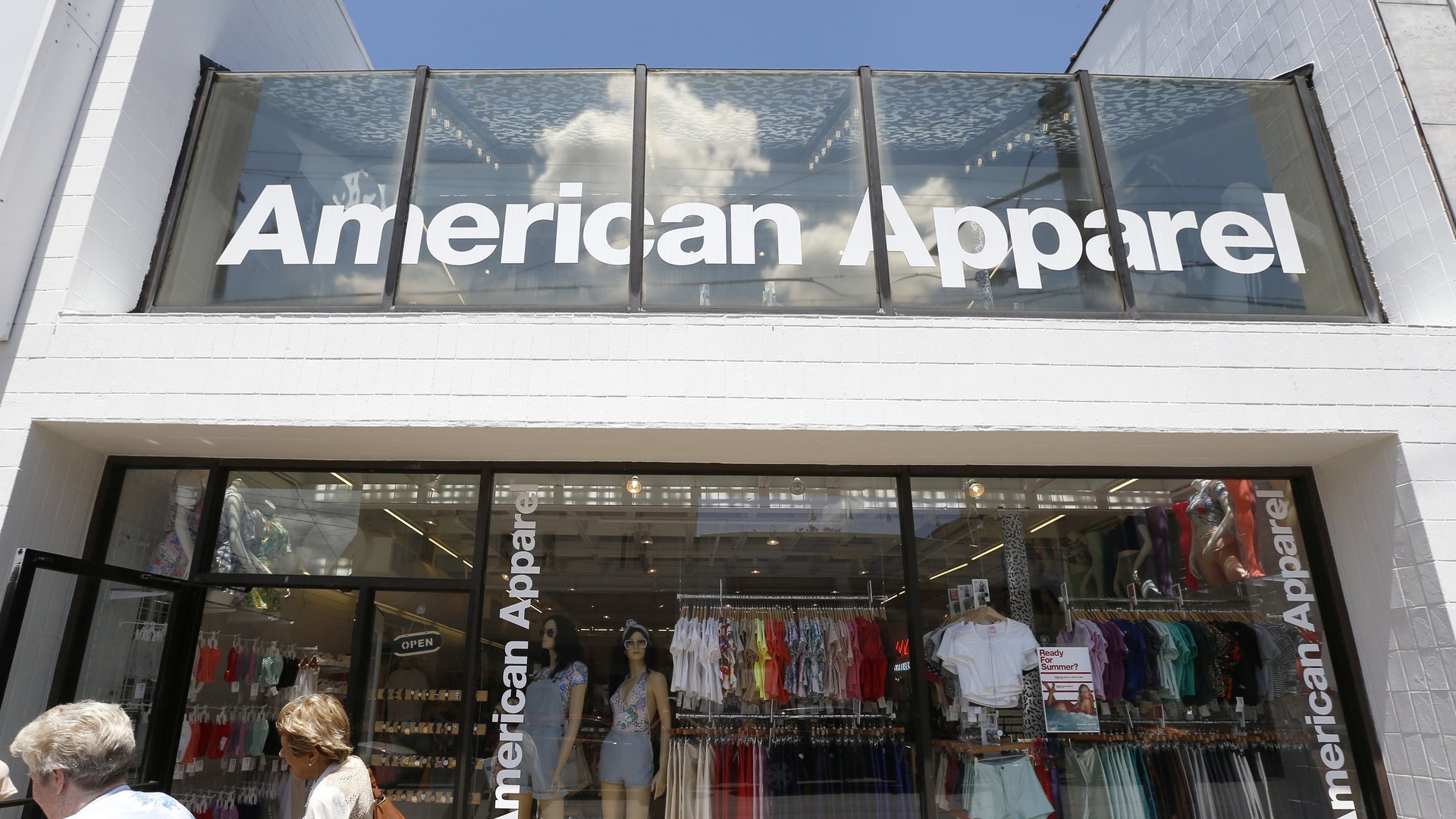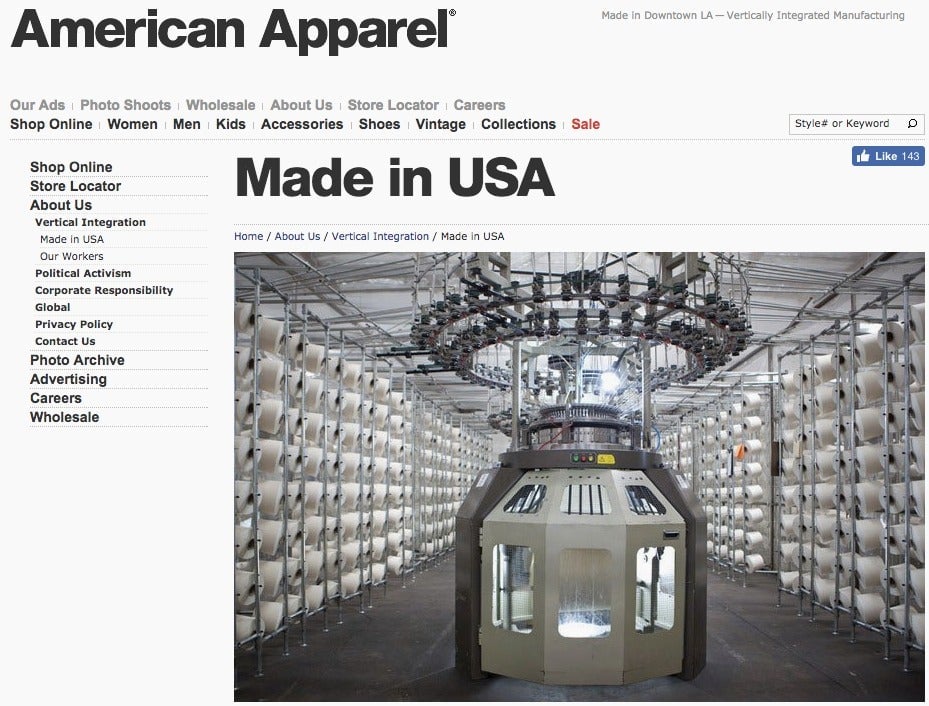American Apparel is making its first products outside America
American Apparel built its image as a purveyor of casual basics on two foundations: its famously sexy, sometimes lurid advertising; and a commitment to making all its product sweatshop-free in the US.


American Apparel built its image as a purveyor of casual basics on two foundations: its famously sexy, sometimes lurid advertising; and a commitment to making all its product sweatshop-free in the US.
For the first time, however, products bearing the American Apparel name will have tags that read “Made in Honduras” and “Made in Nicaragua.”
The New York Post reports that Gildan Activewear, which won the bankruptcy auction to buy the brand early this year, confirmed that it is manufacturing American Apparel t-shirts at some of its factories in Central America. They will start appearing in American Apparel’s wholesale offering this summer.
A spokesperson for Gildan explains that Gildan has “committed to maintaining a Made in the USA collection of key American Apparel styles,” and has secured contract manufacturers in southern California to produce the fabrics and garments. But, he added, “there is a portion of their loyal customers who are seeking a more price-centric offering. It is this incremental collection, which we will be bringing to the wholesale (printwear) market in mid-summer, which will be manufactured using our current manufacturing infrastructure.”
Gildan is a vertically integrated business with factories in the Caribbean and Central America. It can produce its products more cheaply in countries, such as Nicaragua and Honduras, where manufacturing costs, including workers’ wages, are lower than they are in Los Angeles, where American Apparel had manufactured most of its clothing. The spokesman points out that almost all the company’s products start with US-grown cotton, which it spins into yarns in the US before turning them into textiles at its non-US facilities.
Gildan made it clear from the time it took over American Apparel that its interest was primarily about folding it into its own large wholesaling business. American Apparel’s retail operations weren’t part of the deal, and have since been focused on liquidating products as they prepare to close down.
Gildan wanted the American Apparel brand, too. Though it resembles less and less the label once beloved by urban millennials, who went to it for items such as tube socks, t-shirts, and body suits. Meanwhile, that “Made in USA” claim, once so important to the company, is still being promoted on American Apparel’s website.
